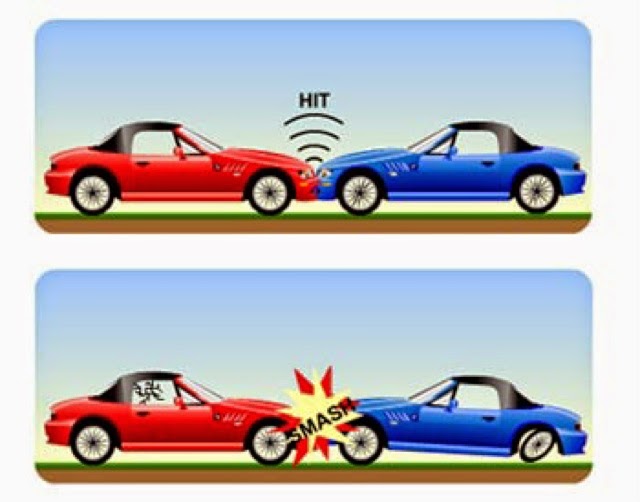- Discuss,with reference to relevant research studies, the extent to which one cognitive process is reliable-
Eyewitness testimony is a theory that shows that not every eyewitness is true about his saying. In many situations,they are not right about who the criminal,the saw,was.
Loftus and Palmers (1974) theorized,it could be information supplied after the event activates our schema.Thereby we are inducing an altered memory of what actually occurred. For this study they used 45 participants where each was shown several videos of car accidents and they were questioned after each video. Each participant received one of the questionnaires. The questionnaires differ only on one word from the question. The question was : " About how fast were the cars going when they 1. contacted, 2. hint, 3. bumped, 4. collided, and 5. smashed. The results were different, even though they watched the same video. There were two interpretations of the result. The stronger the verb was,the higher they guessed the speed, and the second was that theirs memories were influenced by the strenght of the verb.
Eysenck and Keane (2010), discussed the differences between eyewitness reports obtained in laboratory and those provided by eyewitnesses in real- life situations. They found out,that watching a video of an accident or crime is less stressful than observing one in real-life ,therefore this cases of mistaken eyewitness identification in real life,have often serious consequences. The results of this study,were really interesting. They theorized that eyewitness from real situation can recognize peripheral or minor details,rather than central and important aspects of the scene. Because of having such a stress,there is probability that eyewitness testimony might not be reliable.


Žiadne komentáre:
Zverejnenie komentára